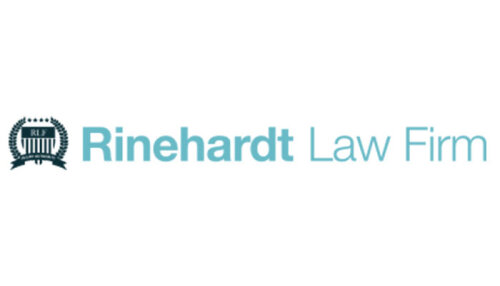Best Medical Malpractice Lawyers in Ontario
Share your needs with us, get contacted by law firms.
Free. Takes 2 min.
List of the best lawyers in Ontario, United States
About Medical Malpractice Law in Ontario, United States
Note: Ontario is a province in Canada. Medical malpractice law in Ontario is governed by Canadian and Ontario law, not United States law. This guide provides an Ontario, Canada perspective on pursuing claims for medical negligence.
Medical malpractice, or medical negligence, occurs when a healthcare professional breaches the standard of care and causes harm. In Ontario, these claims are brought as civil tort actions within the provincial legal system. The process relies on evidence from medical experts to establish duty of care, breach, causation, and damages. Many cases involve hospitals, physicians, or other regulated health professionals.
Ontario claims typically involve three pathways: filing a civil lawsuit in the Ontario courts, pursuing a professional discipline matter through a regulator, or pursuing a combination of both. A lawyer experienced in medical malpractice can help determine the best route based on the facts and the available records. The civil route requires careful gathering of medical records, expert opinions, and a clear statement of claim within applicable time limits.
Key practical considerations include finding qualified medical experts, navigating defenses by insurers, and understanding how damages are assessed. A solicitor or attorney in Ontario with specialization in medical malpractice can coordinate with regulators, physicians, and experts to build a strong case. This guide offers a practical, jurisdiction-specific roadmap for Ontario residents seeking legal advice.
Why You May Need a Lawyer
Legal expertise is essential to evaluate whether a medical error occurred and to pursue the right remedies. Here are real-world scenarios where you would benefit from hiring a medical malpractice solicitor in Ontario.
- A delayed cancer diagnosis by a family physician or radiologist leads to disease progression and worsened prognosis, making liability questions complex.
- A surgeon leaves a foreign object in a patient after an operation or performs an unnecessary procedure, causing additional harm and calling into question standard of care.
- A birth injury results in cognitive or developmental impairment due to obstetric negligence, requiring specialized medical and expert testimony to prove causation.
- A hospital medication error causes serious harm or death, with multiple parties involved including nurses, pharmacists, and the treating physician, making coordination of evidence critical.
- An informed consent issue arises when a patient undergoes a procedure without proper disclosure of risks, alternatives, or potential complications.
- A patient experiences complications after a treatment plan that diverges from established guidelines or best practices, raising questions about negligence and regulatory compliance.
In each scenario, a lawyer can help determine whether the claim is timely, identify the correct parties to sue, gather records from multiple providers, and obtain expert medical opinions. Ontario lawyers also advise on interactions with regulators such as the College of Physicians and Surgeons of Ontario (CPSO) when patient safety concerns exist. Expert consultation and a structured litigation plan reduce delays and increase the likelihood of a fair resolution.
Local Laws Overview
Ontario relies on several key laws to govern medical malpractice and related professional conduct. The following are two to three major statutes and regulations that commonly influence these cases.
- Limitations Act, 2002 - Sets the time limits for starting a civil action, including two-year limitation periods from discovery of the injury and an ultimate long-stop period. This Act affects when a medical malpractice lawsuit must be filed.
- Regulated Health Professions Act, 1991 - Establishes the framework for regulating health professionals, including physicians, and creates disciplinary processes through the Colleges. It governs professional conduct and scope of practice.
- Health Care Consent Act, 1996 - Addresses informed consent and patient autonomy in treatment decisions. It governs how consent must be obtained, documented, and respected in Ontario health care settings.
The Limitations Act generally requires actions to be commenced within two years after discovery of the injury, with an ultimate limitation period of 15 years.
The Regulated Health Professions Act creates a regulatory framework for health professionals and the Colleges that oversee professional conduct and discipline.
For official text and updates, consult Ontario's law sites and regulator pages. Important regulatory guidance can be found through the Ontario Government and professional bodies that regulate physicians and other health professionals. The referenced acts influence both liability and professional accountability in medical care.
Frequently Asked Questions
What is medical malpractice in Ontario?
Medical malpractice is negligence by a health professional that causes injury. It requires proof of duty, breach of standard of care, causation, and damages. A lawyer can help assess whether these elements are present.
How do I know if I have a claim for medical negligence?
You need documented harm arising from a health professional's breach of the standard of care and expert medical opinion to support causation. An early assessment by a specialist lawyer is recommended.
When should I contact a medical malpractice solicitor?
Contact a solicitor soon after recognizing an injury linked to medical care. Early involvement helps collect records, preserve evidence, and identify potential defendants.
Where do I start a medical malpractice claim in Ontario?
Start by consulting a lawyer who specializes in medical negligence. They will guide you through the process, including record gathering and potential filing in the Ontario civil courts.
How long does a typical case take in Ontario?
Proceedings can take from several months to several years depending on complexity, expert availability, and court schedules. Your attorney will provide timelines based on your facts.
Do I need a lawyer to pursue a medical malpractice claim?
While not legally required, a lawyer is crucial to navigate complex evidence rules, expert testimony, and procedural requirements.
How much does a medical malpractice attorney cost in Ontario?
Costs vary, but many Ontario lawyers offer contingency arrangements or staged fees. Ask about retainers, hourly rates, and success-based fees during the initial consult.
Can I sue for malpractice if the harm happened a long time ago?
Reasonable discovery may allow claims within two years of discovering the injury, but there is a 15-year long-stop. Consult a solicitor to evaluate timelines.
What is the difference between a claim against a doctor and a hospital?
A doctor claim targets individual professional negligence, while a hospital claim can involve institutional liability or shared fault. A lawyer helps identify all liable parties.
What evidence will I need to prove negligence?
Medical records, expert opinions, imaging, and correspondence with providers are essential. A dedicated medical malpractice solicitor will coordinate experts and documentation.
Is there a cap on damages for medical malpractice in Ontario?
Ontario does not impose a blanket cap for all medical malpractice damages. Damages are assessed by the court based on the evidence and case law.
Additional Resources
These resources provide official information and guidance related to medical practice, regulation, and patient rights in Ontario.
- College of Physicians and Surgeons of Ontario (CPSO) - Regulates physicians in Ontario and provides information on professional standards, disciplinary processes, and patient safety matters. Website: cpso.ca
- Limitation periods and civil remedies - Ontario government information about the Limitations Act, 2002 and related rules for starting a claim. Website: ontario.ca/laws/statute/02l24
- Health Care Consent Act, 1996 - Ontario government information on consent requirements for health care. Website: ontario.ca/laws/statute/96h02
- Regulated Health Professions Act, 1991 - Regulates health professionals and disciplinary processes. Website: ontario.ca/laws/statute/91r18
Next Steps
- Gather a preliminary bundle of records within 2 weeks: medical charts, imaging, test results, discharge summaries, and any doctor notes related to the injury.
- Schedule a consultation with a Ontario medical malpractice solicitor within 1 month to review your potential claim and timelines.
- Request copies of your medical records formally and promptly if you have not already; ensure records are complete and legible for expert review.
- Identify potential defendants, including physicians, hospitals, and any other health professionals involved in your care.
- Obtain an initial medical opinion from a qualified expert in the relevant field to assess causation and standard of care within 6-8 weeks after records are obtained.
- Discuss potential remedies with your solicitor, including settlement options, mediation, or proceeding to trial if necessary.
- Review engagement terms, cost structures, and any funding options with your lawyer before proceeding. Set clear expectations for communication and milestones.
Lawzana helps you find the best lawyers and law firms in Ontario through a curated and pre-screened list of qualified legal professionals. Our platform offers rankings and detailed profiles of attorneys and law firms, allowing you to compare based on practice areas, including Medical Malpractice, experience, and client feedback.
Each profile includes a description of the firm's areas of practice, client reviews, team members and partners, year of establishment, spoken languages, office locations, contact information, social media presence, and any published articles or resources. Most firms on our platform speak English and are experienced in both local and international legal matters.
Get a quote from top-rated law firms in Ontario, United States — quickly, securely, and without unnecessary hassle.
Disclaimer:
The information provided on this page is for general informational purposes only and does not constitute legal advice. While we strive to ensure the accuracy and relevance of the content, legal information may change over time, and interpretations of the law can vary. You should always consult with a qualified legal professional for advice specific to your situation.
We disclaim all liability for actions taken or not taken based on the content of this page. If you believe any information is incorrect or outdated, please contact us, and we will review and update it where appropriate.










